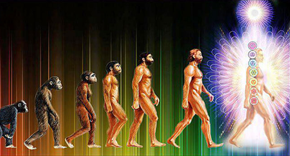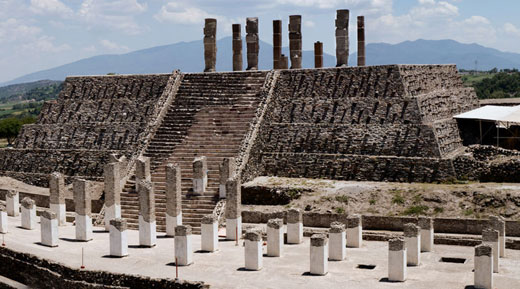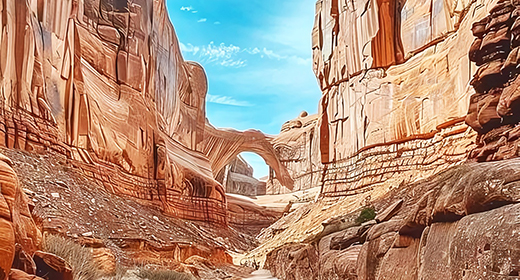Thich Nhat Hanh: This is an excerpt of a talk at the Sandy Beach Hotel in Da Nang in April, 2007.  Thay spoke in Vietnamese to an audience of intellectuals and answered some fascinating questions from the audience.
Thay spoke in Vietnamese to an audience of intellectuals and answered some fascinating questions from the audience.
Most of us think that happiness is made of fame, power, money. Every one of us wants to have more power. We want to have more fame and money, because fame and money give us more power. We keep believing that when we have more money, fame, and power we’ll be happy. I have met a lot of people with great power, with a lot of money and fame, but their suffering is deep. They are so lonely.
William Ford, the Chairman of Ford Motor Company in America, is the fourth generation of the billionaire Ford family. He came to practice with us in our practice center in Vermont. I offered him the gift of a bell, and I taught him how to invite the bell each day. He told me stories of millionaires and billionaires in America who have a lot of fear, sadness, and despair.
Who has more power than the President of the United States? But if we look into the person of President Bush we see he’s not a happy person. Even President Bush doesn’t have enough power to take care of all the problems that confront him. He’s so powerful — he has a great army, a great amount of money — but he cannot solve the problems in Iraq. He can’t spit it out and he can’t swallow it. You’re very lucky that you’re not the President of the United States! If you were the President of the United States you would not sleep all night long. How can you sleep when you know that in Iraq children die every day and every night. The number of American young people who have died there has gone up to more than three thousand. In Iraq — in that country that you want to liberate — nearly a million have died. The situation in Iraq is desperate.
The writer Jean-Jacques Rousseau said that the people with the most power feel that they never have enough power, and this is true. We believe that if we have power, we will be able to do what we want and buy what we want. We can buy a position, buy our enemies, buy anything. If we have power in our hands, we can do anything we want. We have to re-examine that belief, because in reality, I have met people who have great power and money and fame, and who suffer extremely.
The Power of the Spiritual Dimension
In Buddhism we also talk about power. But power in Buddhism is very different; it is a kind of energy that can bring us a lot of happiness and a lot of happiness to others.
In Eastern philosophy and literature, we talk about the spiritual path. Each one of us has to have a spiritual direction in our lives. Whether we are business people, politicians, educators, or scholars, we should have a spiritual dimension in our daily lives. If we do not have that spiritual dimension, we cannot take care of tension and despair, or the contradictions in our mind. We can never establish good communication with our co-workers, our family, our community. Each one of us must have the power of the true spiritual path.
In Buddhism, we talk about the three powers that we can generate through our practice: cutting off afflictions, insight, and the capacity to forgive and to love.
The first one is the power to cut off our afflictions — to sever our passions, hatred, and despair. If we cannot cut off passion and hatred, we cannot ever have happiness. We can learn concrete practices to do this. Once we sever the ties of passion and hatred that bind us, we become light and free and spacious. If we have passion and hatred we suffer — both men and women, you have experience with this. We cannot eat, we cannot sleep; that is hell. So the first power is the capacity to cut off afflictions.
The second power is the power of insight — in Buddhism it is called prajna. It is not knowledge that we have accumulated from reading books or learning in school. Knowledge can be beneficial, but it can also become an obstacle. In Buddhism we say that the only career of a practitioner is insight. The insight of the Buddha and the boddhisattvas — what we call enlightenment — has the capacity to cut off afflictions and to generate the noble sentiments of compassion, loving kindness, altruistic joy, and equanimity. That’s our only career, to give rise to insight. Once we have insight we can unravel our afflictions and help others to take care of their difficulties very quickly, just like a medical doctor. You only need to listen to the symptoms and you’ll be able to make a diagnosis and give the appropriate treatment.
The third power in Buddhism is the capacity to forgive. When we have the capacity to accept and to love, we do not have reproach or enmity. That love manifests in the way we look, in the way we speak. When we look with the eye of compassion and loving kindness, when we speak loving words, we are the ones who benefit first of all. In the Lotus Sutra, the boddhisattva Avaloketisvara looks at all beings with compassion. Looking at all beings with the eye of compassion is a wonderful way of behaving like the bodhisattva — without reproach, without hatred. And the person that we are looking at in this way feels forgiven and loved. We can help others to be liberated from ignorance and from the traps they are caught in.
Wealth as a Spiritual Tool
When we have these three powers — the power to cut off afflictions, the power of insight, and the power to accept, love, and forgive — then fame money, and power become wonderful tools. It is then that the more money we have the better, the more power the better, because they become means that help us to help people, to enhance life. Buddhism does not accuse or judge people who want to become rich or successful in politics or business, but while you’re pursuing these things you should have a spiritual dimension. We must behave on a foundation of love, insight, and wisdom.
In the time of the Buddha, the businessman Anathapindika was an exemplary person. Fortune Magazine (a magazine for business people in the United States) each year gives out a list of a hundred successful businesses around the world, advising people to invest in them. When we look into these businesses we see that they have a point in common: they are operating in a spirit of love. While these businesses aim at higher profitability, they also take care of their workers. Between the owner and the workers, there should be good communication. We have to be able to speak to each other, and we have to be able to understand each other’s difficulties — the workers understanding the pains of the owner and vice versa. If you have no love and you only pay attention to profit, you cannot have as much success. In the time of the Buddha, Anathapindika was an example of this kind of businessman. If you are a business person or a politician and you have love and compassion, then you become a bodhisattva. You have the capacity to cut off your passions and your hatred; you have insight to help resolve problems at your work; you have the capacity to accept and forgive people’s mistakes. You have a lot of power — spiritual power.
As Buddhist teachers we should not abuse our power. It is not because you are the abbot of a temple or the eldest in a temple that you have power. It is because you have the capacity to cut off afflictions, to forgive, and to love. It’s not because you are the abbess or the teacher that people listen to you, it’s because of your love and compassion.
In the political or business arena, the power of the owner or the leader has to be based on the power to cut off afflictions, the power of insight, and the power to love and forgive. Then you use your position skillfully and the things you do will not cause dissension. If you do not generate these three virtuous powers, power and money will corrupt everything, including the life of the owner or the leader. That is why spiritual direction is very important.
The Greatest Success
The Buddha taught that we do not have to hurry towards the future to have happiness; we can be happy right now and right here. The greatest success is to live with love right in the present moment. We have the time to take care of ourselves. If we have pain, tension, irritation, and agitation, we suffer and naturally we cause others to suffer, including our loved ones. That is why we have to have time for ourselves. Then we’ll have time for our family and our community.
Come back to the present moment, do not allow the future to occupy all our energy and time. That is a very important principle from Buddhism. To come back is not easy, because we have the habit energy of running towards the future. Stopping that momentum, coming back to each step, to each breath — that is the basic practice. By living each moment of daily life, living in a way that is deep and free, we can be in touch with the wonders of life.
In a practice center, the basic practice is to use the breath and the steps to bring us back to the present moment. For example, when you listen to a bell you stop all your thinking and speaking and you come back to your breath. You breathe and you bring the mind back to the body, you are truly present in the present moment. In our daily life there are a lot of times our bodies are here but our mind is wandering in the past and the future. Our minds are not truly present in the body and we’re not present for ourselves. How can we be present for our loved ones, for our wives and husbands? These practices are very practical and clear, and they’re not difficult if we have the chance to begin.
I would like to leave the rest of the time so that you can pose questions related to the topic that we discussed today. Thank you for listening.
Question: Bringing Buddhism to the West
Man from audience: First, I’m very surprised when your disciples still keep their religion. For example, if they are priests or pastors or ministers, do they keep their religion? Second, I know that besides being a monk, you are also a scholar. I have read a few of your writings, and I see that you have done work to spread and explain Vietnamese Buddhism to the world, just like Master Van Hanh.* How have you contributed to the development of Vietnamese Buddhism as a scholar?
Thay: Back when Christian missionaries came to Vietnam, they often tried to convert the Vietnamese people and force them to give up their tradition to embrace the new religion. This caused a lot of suffering.
When we had boat people dwelling in refugee camps in Thailand or in other countries, there were also missionaries. They wanted to help those boat people and also tried to lure them to follow their religions. It’s a great pity to force somebody to lose their roots. That is why when we bring Buddhism to Westerners, we tell them, “Do not give up your religion; you can study Buddhist practices to help you take care of your difficulties of body and mind and to learn great love and compassion. You do not have to lose your root religion, because we don’t think that’s the best way.”
In the West, there is a great number of young people who leave their Christian religion because that tradition does not provide the practices that people need today. A lot of people give up their religion and many of them come to practice with us. I have told them, “Once you practice with us, you can go back to help renew your own tradition and religion.” If a country does not have a spiritual foundation, that nation will not endure. So the Westerners see that Buddhism is very inclusive, accepting all and embracing all without denying other traditions.
In Buddhism, we call that spirit of inclusiveness equanimity or non-discrimination. It means that we embrace all. If we say that you have to leave your religion so that you can take refuge in the Three Jewels — that’s not very Buddhist. Buddhism is very open. That is why we have been able to help the pastors and ministers. In their hearts they still love their religion, but they practice wholeheartedly because in Buddhism we have very concrete practices to help them take care of their tension and stress, and help them to help people. If we hold that only our religion has the right view, and other religions do not have absolute truth, this will cause war. Buddhism does not do that.
When we organize retreats or have public talks in the West, many thousands of people come to listen to me, but they’re not Buddhists. Most of them come from a Christian or Jewish background. Sometimes I give a teaching in a church and more people come than at Christmas time, because they see that Buddhism is very noble, very open. It is inclusive and non-discriminative. Moreover, now scientists find inspiration in Buddhism because they see interdependence and emptiness; these teachings attract a lot of scientists to Buddhism.








































